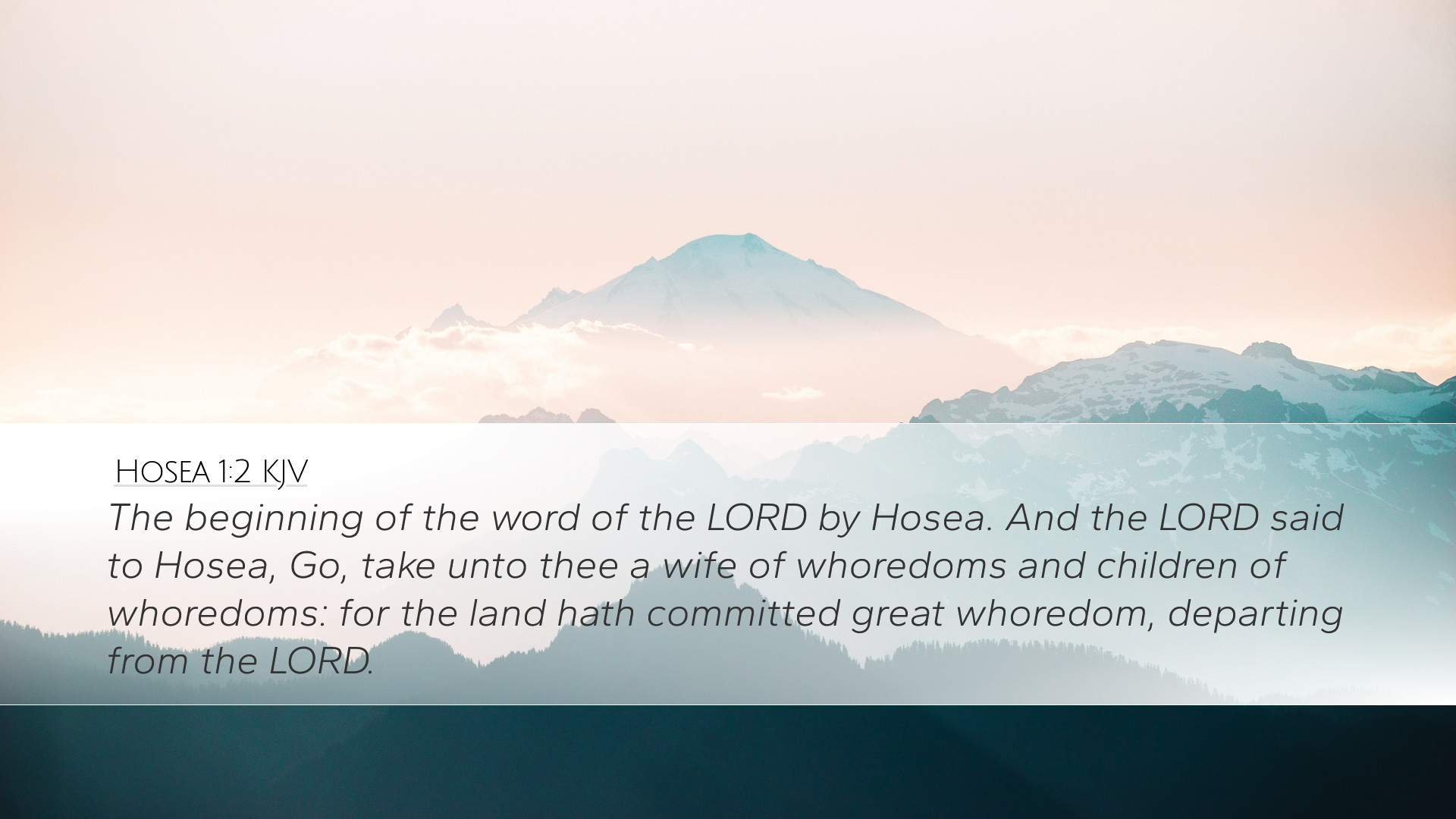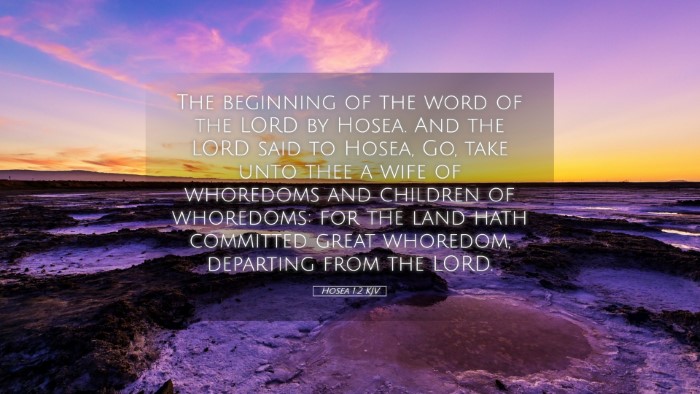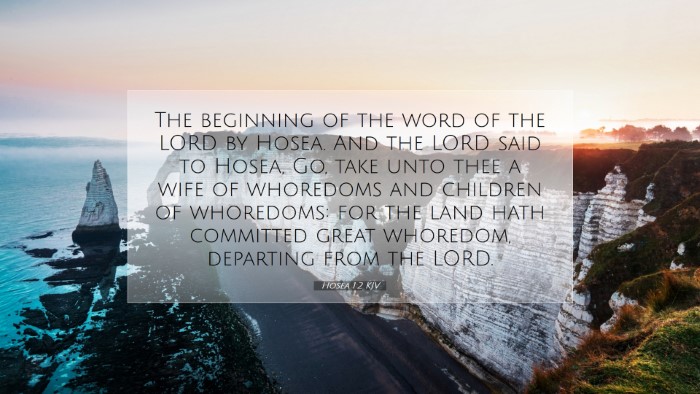Old Testament
Genesis Exodus Leviticus Numbers Deuteronomy Joshua Judges Ruth 1 Samuel 2 Samuel 1 Kings 2 Kings 1 Chronicles 2 Chronicles Ezra Nehemiah Esther Job Psalms Proverbs Ecclesiastes Song of Solomon Isaiah Jeremiah Lamentations Ezekiel Daniel Hosea Joel Amos Obadiah Jonah Micah Nahum Habakkuk Zephaniah Haggai Zechariah MalachiHosea 1:2
Hosea 1:2 KJV
The beginning of the word of the LORD by Hosea. And the LORD said to Hosea, Go, take unto thee a wife of whoredoms and children of whoredoms: for the land hath committed great whoredom, departing from the LORD.
Hosea 1:2 Bible Commentary
Commentary on Hosea 1:2
Verse Text: "The beginning of the word of the Lord by Hosea. And the Lord said to Hosea, Go, take unto thee a wife of whoredoms and children of whoredoms: for the land hath committed great whoredom, departing from the Lord." (Hosea 1:2 KJV)
Introduction
The opening verse of Hosea stands as a crucial point in understanding the prophetic message deliverd through the prophet Hosea. The profound nature of this calling serves not only to highlight the immediate task laid before Hosea but also to introduce the thematic elements of idolatry, unfaithfulness, and covenant relationship that permeate the book of Hosea.
Analysis
The Beginning of the Word of the Lord
Matthew Henry remarks that this phrase indicates the divine authority behind Hosea's prophetic ministry. It marks the inception of a divinely sanctioned communication, emphasizing that the words which follow are not merely human sentiment but rather a direct message from God.
Albert Barnes elaborates further by noting that the designation of "the beginning" suggests a point where God's revelation to Israel, through Hosea, was profoundly urgent. It indicates the onset of an important and transformative message aimed towards a nation steeped in sin.
The Commission to Marry a Wife of Whoredoms
In a remarkable twist, God commands Hosea to take a wife from among those who are promiscuous. Adam Clarke explains that this command is intensely symbolic. It reflects God's relationship with Israel, who had pursued idolatry and thus had forsaken their covenant with Him. The act of marrying a harlot signifies Israel's infidelity to Yahweh.
Matthew Henry adds that this relationship serves as a living parable, illustrating the nature of Israel's sin. Hosea's personal life becomes intertwined with the message he is sent to deliver, showcasing the depth of divine love for a people who continually turn away.
The Significance of "Children of Whoredoms"
The phrase "children of whoredoms" is another poignant aspect of this passage. This line, as interpreted by Albert Barnes, underscores the idea that the children resulting from this marriage symbolize the outcome of a society that has strayed from God. The children will reflect the moral decay and spiritual estrangement of the nation.
Adam Clarke further expounds that this notion of “children” can be seen as indicative of the generations that arise from unfaithfulness, emphasizing that their identity is inherently linked to the mother’s lifestyle and the state of the community.
The Cause: Great Whoredom Departing from the Lord
Finally, the reasoning behind this dramatic command becomes evident. The phrase "the land hath committed great whoredom" points towards a severe spiritual plight. Matthew Henry stresses that this "whoredom" reflects not only the actions of individuals but a collective turning away from God, manifesting in idolatry and various immoral practices.
Albert Barnes emphasizes the gravity of this departure, asserting that it is a willful transgression against the covenant established by God with His people. This rebellion not only reflects a breach in faithfulness but also a broader societal collapse in values.
Theological Implications
The theological implications of Hosea 1:2 are profound. The command for Hosea to marry a wife of whoredoms metaphorically represents God’s enduring relationship with Israel despite their unfaithfulness. Each action taken by Hosea becomes illustrative of God's faithfulness in the face of human infidelity.
Adam Clarke points out that this text sets the tone for understanding God’s compassion and relentless pursuit of His people. It echoes the broader biblical narrative of redemption, where infidelity is met with grace and an invitation to return.
Conclusion
Hosea 1:2 serves as a pivotal introductory verse that encapsulates the heart of the prophetic call. The intertwining of Hosea's personal narrative with the divine message effectively communicates the gravity of Israel's spiritual condition. Through the personal experiences of Hosea, God reveals His longing for reconciliation with His people. This text challenges pastors, students, theologians, and scholars to reflect on the faithfulness of God amidst human unfaithfulness and to embrace the call to repentance, as exemplified through Hosea's life and ministry.


